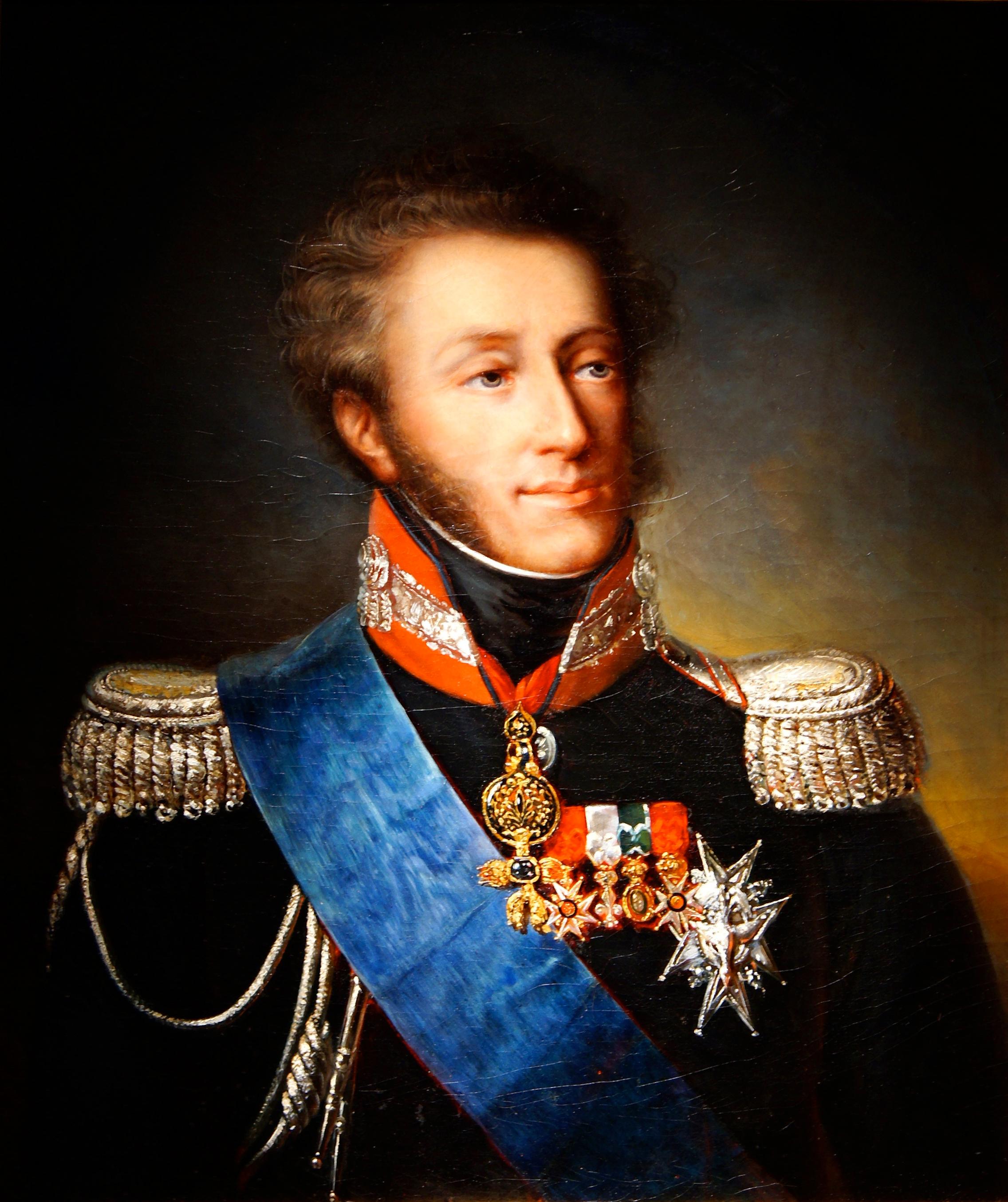 Persona - Borbón Saboya, Luis Antonio de (1775-1844)
Persona - Borbón Saboya, Luis Antonio de (1775-1844)
Identificación
Tipo:
Persona
Forma autorizada:
Borbón Saboya, Luis Antonio de (1775-1844)Formas paralelas (otros idiomas) Otras formas
Fechas de existencia:
Palacio de Versalles (Yvelines, Francia) 1775-08-06 - Gorizia (Friuli-Venecia Julia, Italia) 1844-06-03
Historia:
Luis Antonio de Borbón Saboya (Versailles, 6 de Agosto de 1775 – Gorizia, Austria, 3 de junio de 1844). Duque de Angulema y conde de Marnes.
Fue el último Delfín de Francia entre 1824 y 1830, hijo primogénito de Carlos X (1757-1836) y de María Teresa de Saboya (1756 -1805). A su nacimiento, su tío el rey Luis XVI de Francia, le otorgó el título de duque de Angulema.
En 1789, debido a los acontecimientos revolucionarios, abandonó Francia con sus padres pasando gran parte de su vida en el exilio. Contrajo matrimonio con María Teresa de Francia (1778- 1851) pero no tuvieron hijos.
Regresó a Francia tras la caída del imperio de Napoleón y como consecuencia de ello, su tío Luis XVI (1755-1824) ascendió al trono.
Era primo del rey Fernando VII de España y en 1823 encabezó la expedición militar francesa denominada Los Cien Mil Hijos de San Luis, enviada a España para ayudar a Fernando VII a restablecer la monarquía absoluta.
El 16 de septiembre de 1824, al ascender su padre al trono francés como Carlos X, se convirtió en Delfín de Francia, y heredero de la corona. Sin embargo, el 30 de julio de 1830, en el ámbito de la Revolución de julio, el rey Carlos X fue depuesto.
El 2 de agosto de 1830, Carlos abdicó en favor de su nieto el duque de Burdeos, Enrique de Artois (1820-1883); minutos más tarde, Luis Antonio también renunció sus derechos en favor de dicho duque. Esto provocó la división en los monárquicos legitimistas, que consideraban dicha abdicación como nula (carlistas) y por tanto Carlos X continuaría siendo el rey legítimo; y los que la consideraban la abdicación como válida (enriquistas), y por tanto, su nieto Enrique, sería el rey legítimo de Francia.
La familia real hubo de marchar al exilio mientras que el duque de Orleans y Lugarteniente General del Reino fue elegido por las Cámaras y proclamado rey de los franceses como Luis Felipe I (1773 –1850).
Al morir su padre Carlos X en Praga en 1836, una parte de los legitimistas le consideraron como nuevo rey con el nombre de Luis XIX, por considerar inválidas las abdicaciones de 1830. A pesar de adoptar la jefatura de la Casa real y la titularidad de rey, se mantuvo apartado de la política y empleó el título de conde de Marnes.
Fecha del evento: 1820 - 1823
Lugares
Lugar de Nacimiento:
Lugar de Defunción:
Conceptos/Objetos/Acontecimientos
Fuentes
Gil Novales, Alberto. Diccionario biográfico de España (1808-1833) : de los orígenes del liberalismo a la reacción absolutista. Alberto Gil Novales. Madrid: Fundación Mapfre. 3 v. (3406 p.). 978-84-9844-236-6 (Vol. 3).
Relaciones
Relaciones familiares :
Relaciones asociativas :
Enlaces Externos
Catálogo de Autoridades:
Documentos
Productor de:
- No hay Unidades de Descripción asociadas.






